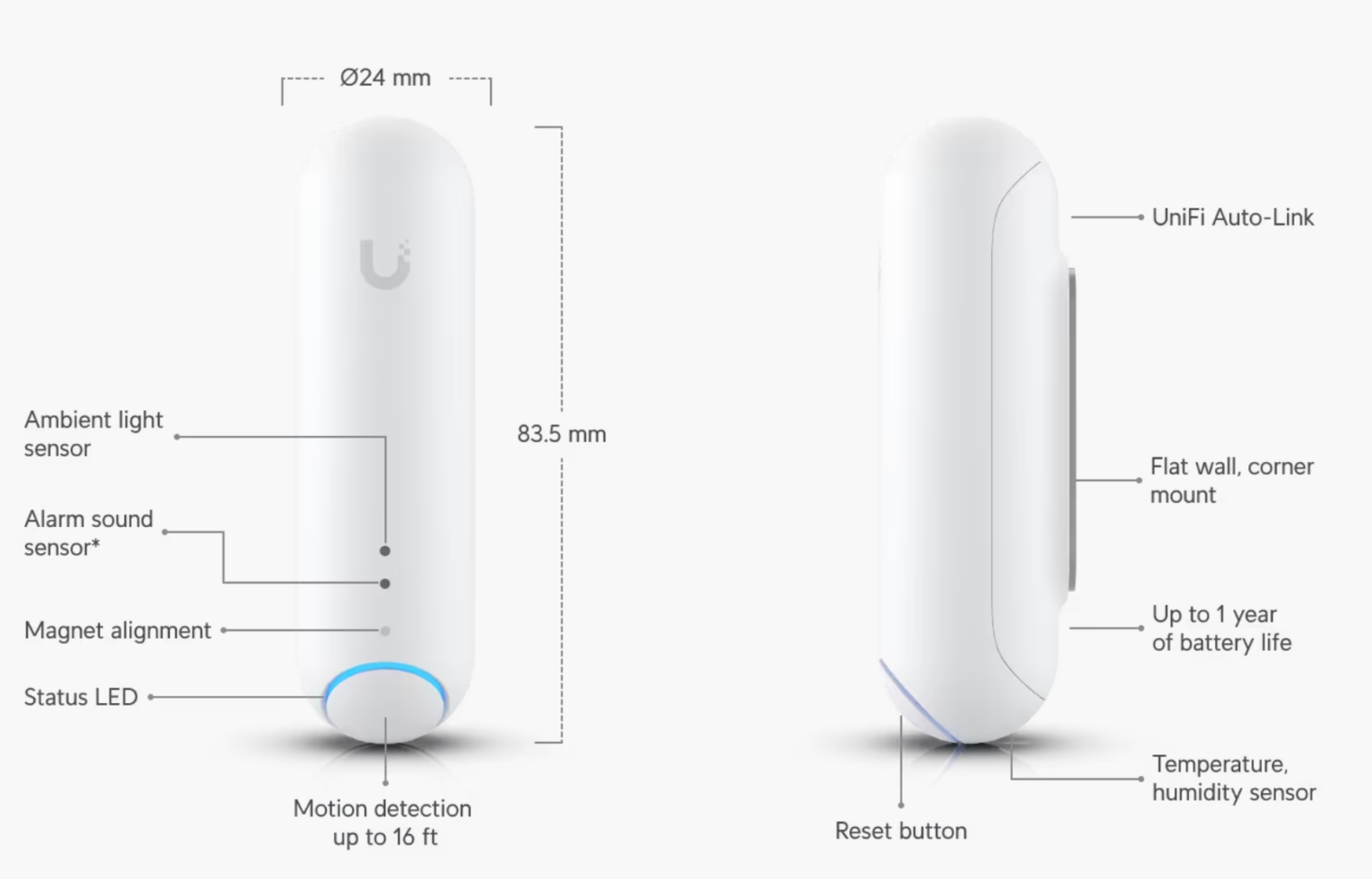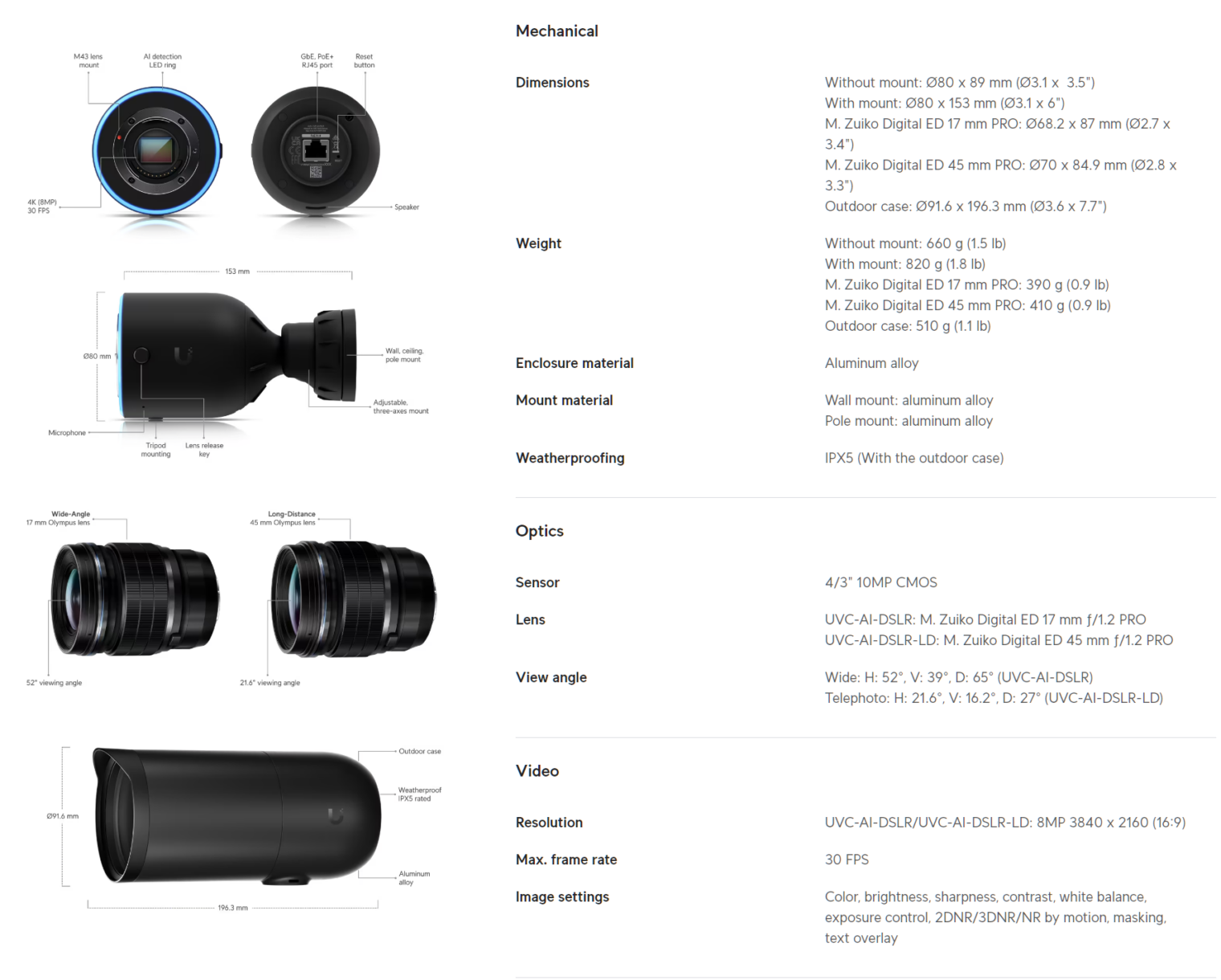American houses have gotten larger:
Thanks to the hard-working folks in China and at Walmart, stuff has gotten cheaper. The result is that we live in large environments crammed with stuff. This makes it tough to find one’s keys, the cup of coffee that one recently set down, etc.
Instead of AI taking over the creative jobs of writing poetry and making art, why not have AI watch everything that happens in the apartment or house (video and inferences from the video stored locally for privacy) and then we can say “Yo, ChatGPT, where did I leave my keys?” If we get in the habit of showing documents that arrive in the mail to a camera we can also ask the AI to remind us when it is time to pay a property tax bill or ask where we left an important document.
This could be rolled into some of the boxes that Unifi makes. They already make sensors for the house:
They claim to have “AI” in their $2500 “DSLR” PoE camera (only 18 watts):
Their basic cameras are $120 each. If the basic cameras are good enough, this should be doable on top of the Unifi infrastructure for perhaps $300 per room plus whatever the central AI brain costs.
Speaking of Unifi, I’m wondering why they don’t sell a combined access point/camera. If the customer has just a single CAT 5/6 wire to the back yard, wouldn’t it make sense to have the same PoE-powered device handle both security and WiFi? As far as I know, there isn’t any combined camera/AP.
(I’m still using the TP-Link Omada system that I bought because Unifi’s products were all out of stock. See TP-Link Omada: like a mesh network, except that it works (alternative to UniFi). Everything works, but they don’t seem to be trying to expand beyond networking as Unifi has. Maybe when WiFi 8 comes out it will be time to trash all of the working WiFi 6 Omada gear and get with the Unifi/Ubiquiti program.)
Speaking of houses, here’s a recent New York Times article informing us regarding what a typical American “couple” looks like (the word is used 11 times in the article)…




That would require quite the high resolution for the kinds of things lions lose. The carpet abounds with lost 0402 resistors. Then there’s always finding parts in strips. How would it indicate where a certain resistor is in a bag of strips of resistors? Would it have a laser pointer, but a laser is not a language model? A robot which shuffled through a bag of parts & grabbed the right one isn’t a language model either. You can’t make money in AI this month unless it’s a language model. A phone app which scanned an image of a bag of through hole resistors for the closest value would be useful but that’s an image recognition model.
One of the Omada AP models, maybe more, have a pass through PoE port that can be used to connect a camera, say, in a garage.
Phil, have you tried Apple AirTags?
If you can’t remember where you put your keys, you have become too big and need to downsize. No need for Little Brother.
Sam: I have put so much work into our current house that the only way I can get a return on the investment is to live in it until Jesus calls me home and then be buried in the pool.
What’s the problem with the couple, exactly? You just trying to sneak in a little homophobia without explicitly saying anything? That NYT feature highlights the housing searches of all sorts of couples of all descriptions. The ones that tend to annoy me are those that reveal that one spouse is a musician, the other an Etsy seller, yet somehow (thanks to generational wealth, one presumes) they are working with a budget of $1.2M.
Eric: Given that approximately 1 percent of couples in the U.S are what used to be called “same-sex” (see https://www.census.gov/library/stories/2022/11/same-sex-couple-households-exceeded-one-million.html ), I have no doubt that the portrayal of gay male domestic bliss was a happy accident and not part of any kind of political agenda at the NYT.
@Eric, what’s the problem with the couple? Nothing really.
The problem is with NYT and the like liberal outlets. There are 1000’s of other couples out there that have the exact same story as David Pickett and Bert Fox, but yet, anytime NYT or other liberal outlets wants tell us the news, they look in the haystack for that “special” couple.